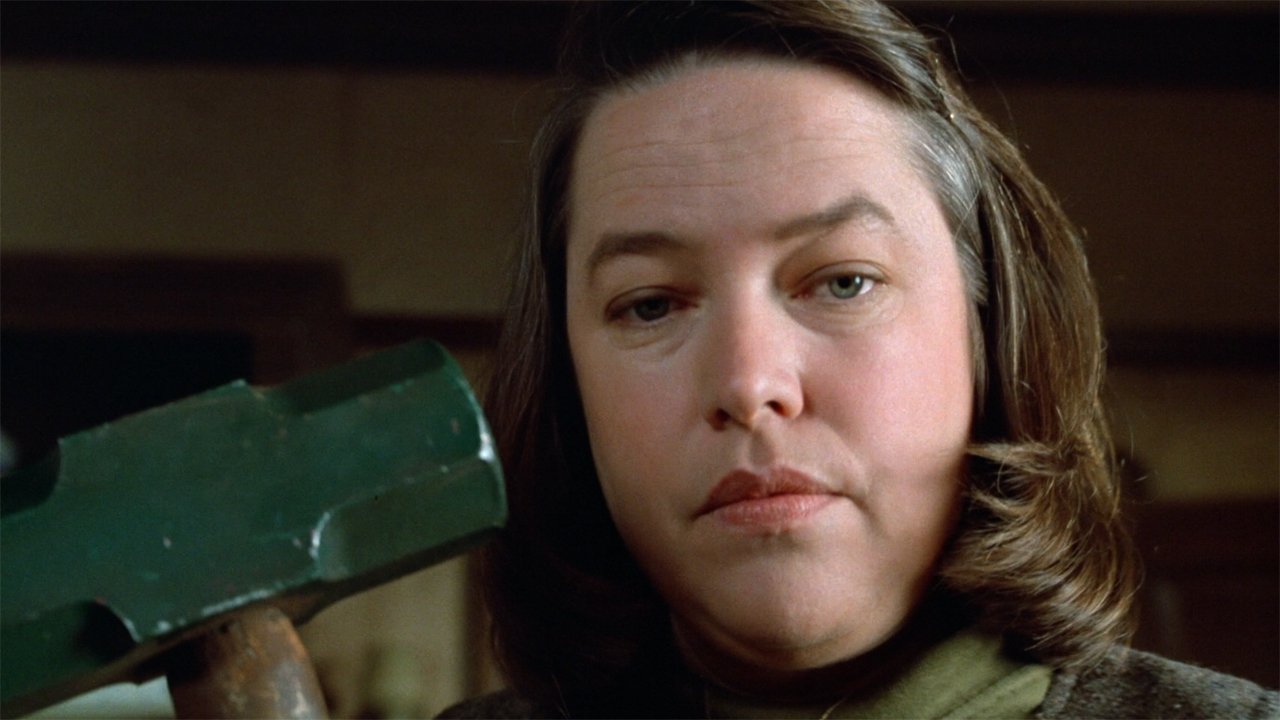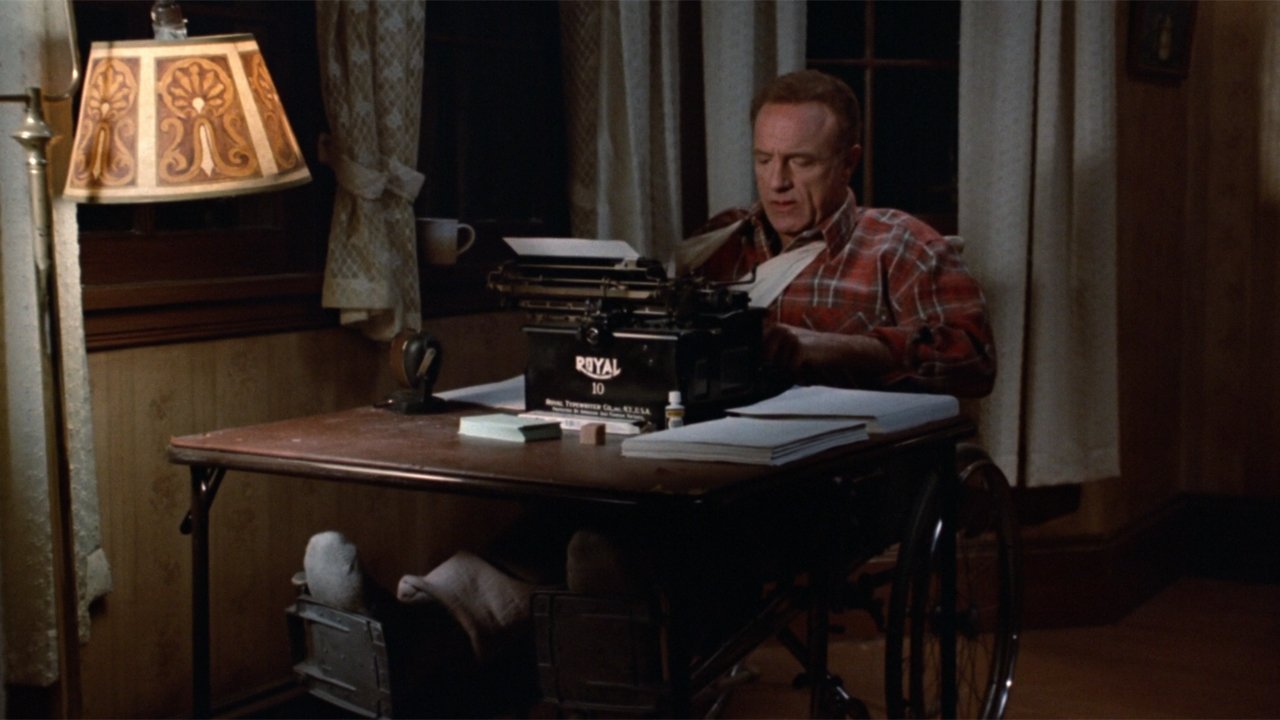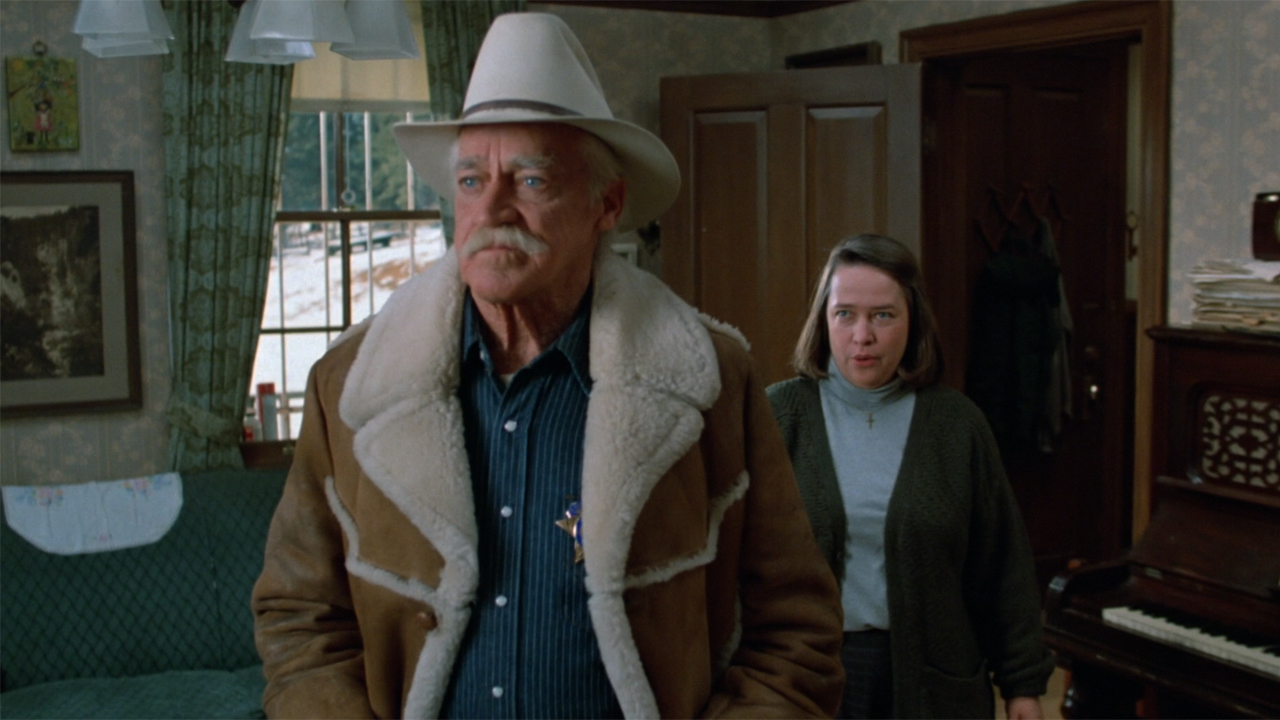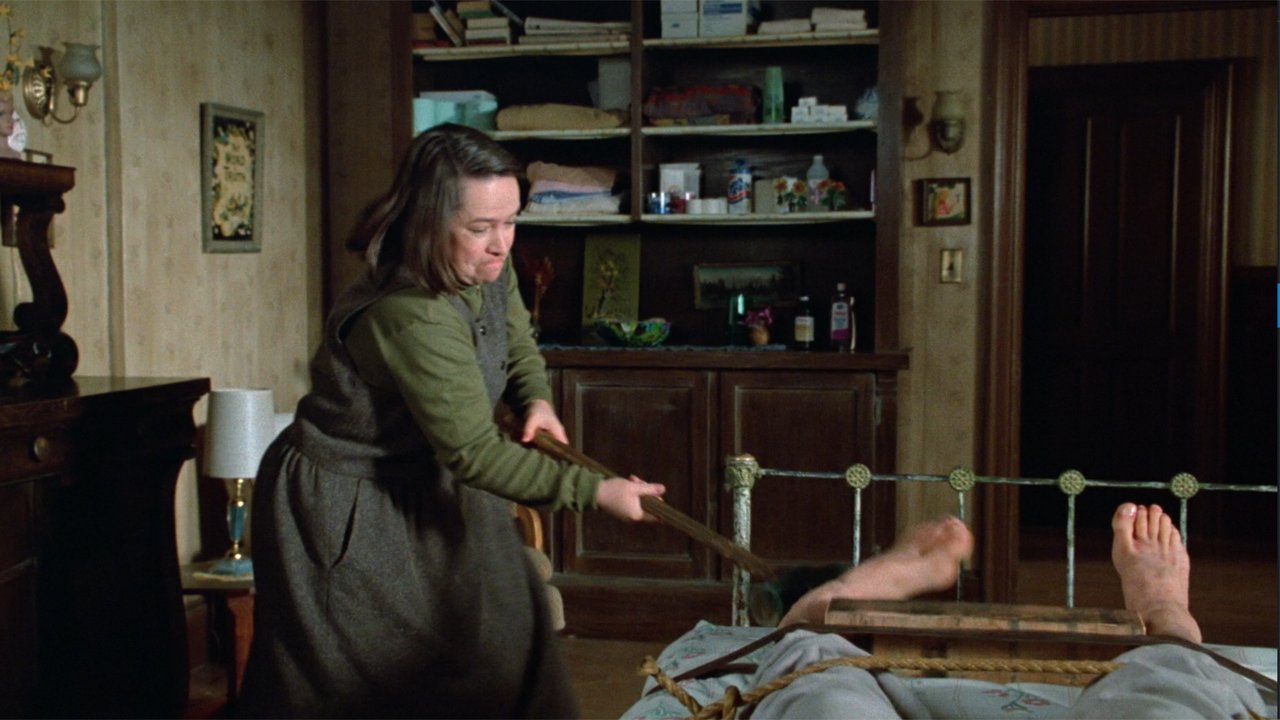Adapting Stephen King's Misery: A Number One Fan Look Back At The Brilliant 1990 Movie

On one fateful day in the late 1980s, producer Andrew Scheinman found himself in an airport with time to kill and the need to find reading material for an upcoming flight. Perusing the bookshelves in one of the shops, he came upon a hardcover copy of Misery by Stephen King. It was a title that stuck out if not at least in part because Scheinman had just recently had a hand in making Rob Reiner’s Stand By Me – an adaptation of King’s novella “The Body” that wound up being a massive critical and box office success. The filmmaker purchased the novel, and he dove head first into the brilliantly tense tale of author Paul Sheldon and his #1 Fan/psychotic captor, Annie Wilkes.
By the time Scheinman finished the relatively short book, he knew that he wanted to turn it into a movie – and he was surprised to discover that the rights had not been optioned. The reason for this, however, was because of Stephen King. The writer felt an immensely personal connection to the work, and it wasn’t one that he was willing to simply put into the hands of the highest bidder. If Misery was going to be made into a film, he was going to make sure that it was going to be the best film it could possibly be.
In this sense, Andrew Scheinman developing a passion for the novel was a kind of serendipity. King had exceptional admiration for the work that Rob Reiner did on Stand By Me, and Scheinman was one of Reiner’s producing partners at the newly formed Castle Rock Entertainment (which took its name from the famous fictional town in said movie/King’s books). This in mind, the author offered to sell the rights with one key provision: Reiner would have to at least produce, if not direct the adaptation.
After George Roy Hill turned down the opportunity to take the helm (despite it being a chance to reunite with Butch Cassidy And The Sundance Kid screenwriter William Goldman), Rob Reiner took the initiative to make Misery as his first venture into new genre territory – and what resulted is not just one of the best Stephen King movies, but one of the all-time great big screen thrillers. It’s a fascinating, intense, and passionate piece of fiction, and the phenomenal subject at the heart of this week’s Adapting Stephen King.

What Misery Is About
The notion of a writer developing a hit novel after waking from a dream and scribbling some notes feels like a total cliché, but it’s the undeniable origin of Stephen King’s Misery. Practically foreshadowing Andrew Scheinman’s aviation-centric discovery, the author was first inspired to pen the book in the early 1980s while taking a nap on a flight to London. As he describes in the memoir On Writing, his subconscious spun up the tale of a novelist being held hostage by a psychotic fan on an isolated farm – the livestock on the property including a pig named after the protagonist in the hostage’s “best-selling bodice-rippers.”
King awoke from this dream and scribbled his sleep-addled thoughts on a napkin (which he paraphrases in his non-fiction book):
She speaks earnestly but never quite makes eye contact. A big woman and solid all through; she is an absence of hiatus… ‘I wasn’t trying to be funny in a mean way when I named my pig Misery, no sir. Please don’t think that. No, I named her in the spirit of fan love, which is the purest love there is. You should be flattered.’
Annie Wilkes was born.
CINEMABLEND NEWSLETTER
Your Daily Blend of Entertainment News
At first, the idea was developed as a quick and mean novella. Staying at the Brown’s Hotel in London and working at a desk that was once Rudyard Kipling’s, he imagined a version of the story titled “The Annie Wilkes Edition” – one that gave the abducted writer the name Paul Sheldon, but concluded with him not only penning a book against his will, but also being killed so that his skin could be used for the single copy’s binding.
As he really got into writing it, however, he discovered complexities in the characters that he didn’t recognize at first. Paul Sheldon turned out to be more resourceful than the version in the “plan,” and Stephen King delighted in crafting the great paradox of Annie Wilkes’ personality: her deep dislike of profanity and ill-manners paired with a nonchalant willingness to inflict great pain.
From all of that conceptualization came Misery, which begins after Paul Sheldon has published what he believes to be the last volume in a long series of popular romance novels. Staying in a hotel in the Rocky Mountains of Colorado, he finishes his latest book, a thriller titled Fast Cars, and he plans to head back home to New York – but instead a car accident on the snowy roads leaves him barely clinging to life.
The good news for Paul is that Annie Wilkes arrives on the scene and, being a registered nurse, is able to save his life. The bad news for Paul is that Annie is an obsessed fan with a wide variety of mental disorders, and she is ferociously angry that the author has had the audacity to kill off her favorite character, Misery Chastain. Informing nobody of the accident or rescue, she keeps him locked up against his will in her house and forces him to write a new book that brings her beloved Misery back to life.
Misery is a novel about very personal subject matter for Stephen King that plays on two different levels. One is obvious: Paul Sheldon can be read as a surrogate for the King, anxious about the reception of his work beyond the material that initially earned him a readership. The other level is more subtext: it’s about the author’s battle with addiction.
In On Writing, King notes that it was understanding the parallel between Annie Wilkes and his drug and alcohol habits that eventually helped him recognize that he has a problem and change his life. He writes in the book,
What finally decided me was Annie Wilkes, the psycho nurse in Misery. Annie was coke, Annie was booze, and I decided I was tired of being Annie’s pet writer. I was afraid that I wouldn’t be able to work anymore if I quit drinking and drugging, but I decided (again, so far as I was able to decide anything in my distraught and depressed state of mind) that I would trade writing for staying married and watching the kids grow up. If it came to that. It didn’t, of course.
It was a personal revelation for which Stephen King fans everywhere can be continually grateful, as it was a decision that has surely extended his life.

How Rob Reiner’s Misery Differs From Stephen King’s Book
In adapting Misery, Rob Reiner very much did right by Stephen King as far as staying faithful to the source material. With the vast majority of the action set within the confines of Annie Wilkes’ house, the movie didn’t require any key cuts for budget or runtime concerns, and the characters as portrayed by James Caan and Kathy Bates are facsimiles of what’s on the page as far as personalities are concerned. In light of the close relationship between the book and the movie, though, the differences stand out all the more.
One of the first deviations that presents itself in the live-action presentation can be described as in the realm of character pacing. Watching the first 28 minutes of Misery in a vacuum, you might wonder if the film is setting up a kind of Florence Nightingale romance, as Annie does an effective job of hiding her personality disorders and convincing Paul that the recent blizzard has blocked roads and communication. It’s effectively a slow build to elevate tension – while in Stephen King’s book the antagonist is identified as “dangerously crazy” on page eight.
The two versions additionally have different ways of breaking up the story. One of the reasons why the original text is so intense is because it traps the reader with Paul and keeps the outside world beyond reach – the only exceptions to this being the sections of the book that let us read what the writer has been working on for Annie. The film changes this in a massive way with the introduction of Richard Farnsworth’s Buster, the local sheriff. His investigation is wholly invented for the film, including his surprise demise (Annie does kill a police officer in the novel, but she doesn’t use a shotgun; she stabs him with a cross and then runs over him with a riding lawnmower).
On the whole, Stephen King’s version of Misery is definitely more gruesome and darker than Rob Reiner’s, and it’s not just about the cop and the lawnmower. As hard as it is to watch Annie Wilkes take a sledgehammer to Paul’s ankle in the film, she straight-up cuts off his foot with an axe in the book, and cauterizes the wound with a blowtorch. She also cuts off his thumb with an electric knife when he complains one too many times about the missing “N” on the typewriter, and he becomes hooked on a fictional painkiller called Novril. (Speaking of Novril, I should add that Paul also doesn’t try to drug Annie in the novel, determining that the medicine’s taste is too bitter to disguise.)
Lastly, there are significant changes made in the ending of the story. Unlike Paul in the movie, Paul in the book only pretends to burn his finished version of Misery’s Return – setting aflame a stack of blank paper instead. After he is rescued, he opts to publish the work, and it becomes a massive hit… but Paul is left with writer’s block and a growing alcoholism problem. After a period of strife, he finally develops a new idea for a story, and begins to cry as he types.

Is It Worthy Of The King?
There are countless notorious incidents of betrayed trust in Hollywood, as the industry regularly sees faith cast aside in the name of opportunity – but Stephen King was ultimately proven astute in believing that Rob Reiner would do right by him in adapting Misery for the big screen. The successful team-up behind the scenes of Stand By Me proved to be anything but a fluke, as Reiner demonstrated a deft and impressive understanding of King’s work, and he made the story of Paul Sheldon and Annie Wilkes the cinematic classic that the spectacular source material deserves.
Given that Rob Reiner’s previous experience as a director was primarily in the world of comedy – from This Is Spinal Tap, to The Princess Bride, to When Harry Met Sally – there was no real guarantee that his filmmaking method could deliver an effective thriller, but he studied the entire filmography of Alfred Hitchcock prior to production, and applied the education brilliantly. There is an incredible tension flow in Misery, riding the waves of Annie’s pronounced bipolar disorder, and one couldn’t ask for a better presentation of Stephen King’s characters.
Kathy Bates is so phenomenal that she became one of the few actors to ever win an Academy Award starring in a horror movie, and it is a flawless and terrifying performance – her cheery, manic state during the hobbling sequence generating one of the most remarkable and stunning moments in cinema history. Not to be totally overshadowed, however, is the incredible turn by James Caan. The Godfather star was ridiculously far down the casting wish list for the film, as Robert Redford, Warren Beatty, William Hurt, Harrison Ford, Gene Hackman, Dustin Hoffman, Kevin Kline, and Richard Dreyfus were all first offered the part first and said no, but the tension and drama that Caan is able to wrought in what is a terrifically confined performance is brilliant.
There is no doubt that Rob Reiner’s Misery will forever be remembered as one of the greatest Stephen King adaptations of all time – and the only sad part of that superlative is that Reiner has not directed another one since (but I’ll get more into that in a few weeks when it’s time to write about Frank Darabont’s The Shawshank Redemption).

How To Watch Rob Reiner’s Misery
Those of you who enjoy collecting physical media will be excited to know that Kino Lorber is set to release a brand new 4K edition of Rob Reiner’s Misery this October (specifically on October 12). If you’re looking to watch it right now, however, there are also online options. It’s instantly watchable with a Cinemax subscription (also through add-ons on both Amazon and Hulu), and it’s available for digital purchase.
Next week, Adapting Stephen King will again be heading back to the CinemaBlend television section, as I will be examining the horrors in Tom McLoughlin’s Sometimes They Come Back – based on the story featured in the collection Night Shift. Look for it on the site next Wednesday, and click through the banners below to discover all of the previous installments of this column!







Eric Eisenberg is the Assistant Managing Editor at CinemaBlend. After graduating Boston University and earning a bachelor’s degree in journalism, he took a part-time job as a staff writer for CinemaBlend, and after six months was offered the opportunity to move to Los Angeles and take on a newly created West Coast Editor position. Over a decade later, he's continuing to advance his interests and expertise. In addition to conducting filmmaker interviews and contributing to the news and feature content of the site, Eric also oversees the Movie Reviews section, writes the the weekend box office report (published Sundays), and is the site's resident Stephen King expert. He has two King-related columns.









